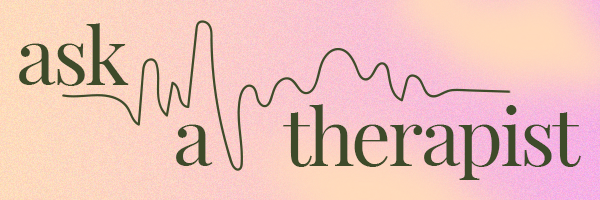Ask A Therapist: How Can I Stop Unloading My Anxieties On Others?
Photographed by Laura Chen.
Ever wondered what you'd say to a therapist, given the chance? We asked Dr Sheri Jacobson, a retired psychotherapist with over 17 years' clinical experience and the cofounder of Harley Therapy Platform (Online Counselling), for advice on the things we worry about in private.
Have a question for a therapist? Submit yours for Sheri.
Question:
I am an anxious person and have been for a long time. I do everything I can to manage it myself (therapy, medication, meditation) but the thing that helps me the most is sharing my anxieties with others. At first I thought it was good to talk about these things but then, after a particularly panicked conversation with my close friend who was herself stressed, I realised I’m often just roping people into my anxieties. Since I noticed I feel terrible for unloading on people but I can’t stop. I’d love some advice on how to let go of this habit.
AdvertisementADVERTISEMENT
Marie, 25
Answer:
You’re very self-aware to have recognised that this particular action isn’t serving you well anymore. It's important to think about the difference between helpful and harmful methods of managing anxieties. Often if we’re honest with ourselves we can have a sense of if our methods are overall productive or counterproductive for ourselves and others and whether they affect our daily functioning. It's not so much whether it feels good or bad in the moment – say your coping strategy is substance use, no matter how good it feels in the moment, it can kick off a negative cycle. And it’s not just about from your own viewpoint.
Before I talk about the downsides of unloading on people, I just want to preface by saying talking about our weaknesses or our difficulties is actually a very bonding mechanism. It really can bring people together when you show your vulnerabilities and it can be the basis of some good friendships as well. So it's not that we ever want to banish sharing anxieties with others full stop and you shouldn't look at it completely negatively.
With that said, it's good to be aware that when you do this you're potentially burdening the other person. For example, if you hear negative issues all day long it’s quite likely for that to affect your mood. You would need a lot of positive experiences and events to balance that out. So there's this possibility that that person starts to feel burdened because of the volume of content that you're discussing, as well as maybe its intensity too.
AdvertisementADVERTISEMENT
It could also feel frustrating for another person if there's no resolution, particularly with thoughts/situations that are repetitive without moving forward at all. And there also could be what we call compassion fatigue, when you continually lend your sympathy and maybe empathy to someone who's having difficulty but at some point that compassionate ear becomes exhausted. It's slightly different from being overburdened and lowering someone else's mood, it's more like the effect of numbing as your emotional stamina runs out.
There is of course a difference between realising you want to change a habit and actually changing it. We are habit-forming creatures after all and quite often our habits are negative because though we think that they're going to help, they end up bringing some downside. By the time we recognise the downside, we're already stuck in that loop. Which is why reversing any habit takes effort. There's usually two ways to handle it. The first is cold turkey and dramatic. That is to set yourself the target of stopping all at once and replacing it with an alternative behaviour. It takes the average person about two weeks to break the average habit so for two weeks, try not to see anyone who you would normally start sharing anxieties with and withdraw from that. It'll be uncomfortable but if you can, have some alternative, healthy habits or distractions in place for that period of time. Anything from reading to exercising to documentaries, things that overall are a bit more distracting, definitely, but healthy as possible.
And the other side is the gradual change. We work in therapy with what we call a graded hierarchy, where you do little steps at a time – you can either write them down and then tackle them one at a time, or you can just gauge that if your usual sharing anxiety session is an hour, then you're going to start off with 45 minutes and then 30 minutes and then 20 minutes until it's gradually reduced. And that depends on the person and how much you can tolerate. You will feel distress if you're doing anything different than the norm usually, so it's about adjusting it ever so slightly. That way the extra anxiety that is brought on by not sharing is tolerable.
This interview has been edited and condensed for clarity
AdvertisementADVERTISEMENT







